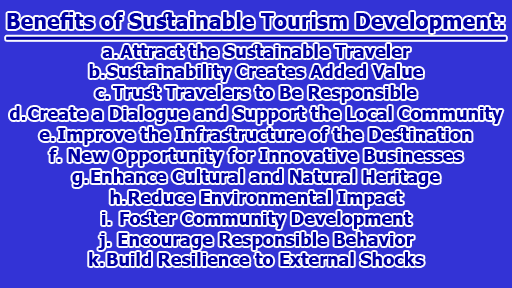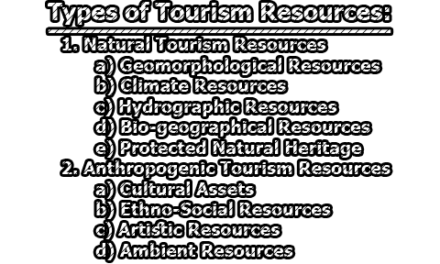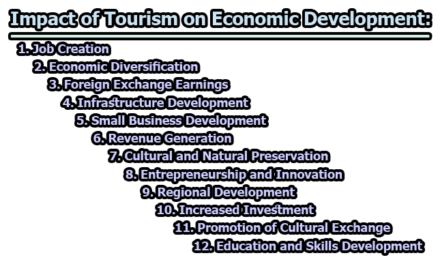Sustainable Tourism Development refers to the practice of developing and promoting tourism in a way that balances economic, social, and environmental factors. The goal of sustainable tourism development is to ensure that tourism activities can continue in the long term without negatively impacting the natural and cultural resources of a destination or compromising the well-being of the local communities that depend on tourism. In practical terms, this means developing tourism in a way that minimizes the use of non-renewable resources, reduces pollution and waste, protects and conserves biodiversity and cultural heritage, supports local economic development, and promotes social equity and community involvement. It also involves educating visitors about sustainable tourism practices and encouraging them to act responsibly while traveling. Sustainable tourism development is becoming increasingly important as the tourism industry continues to grow, and as travelers become more aware of the environmental and social impacts of their travel choices. By adopting sustainable tourism practices, destinations can ensure that they remain attractive and viable for future generations of visitors. In the rest of this article, we are going to know about the importance and benefits of sustainable tourism development.
Why is Sustainable Tourism Development Important?
Sustainable tourism development is crucial for the long-term viability of the tourism industry and the well-being of local communities and environments. Here are some reasons why sustainable tourism development is important in terms of its environmental, socio-cultural, and economic impacts:
- Environmental Impact: The environmental component of sustainable tourism development is concerned with preserving the natural world and minimizing the use of natural resources. This means taking steps to promote ecotourism and avoid damaging plants and wildlife, while also minimizing greenhouse gas emissions and the use of water and fossil fuels.
- Reduces Negative Environmental Impacts: Traditional tourism development can have negative environmental impacts, such as pollution, habitat destruction, and resource depletion. Sustainable tourism development aims to minimize these impacts by reducing waste, using renewable resources, and protecting natural habitats and ecosystems.
- Preserves Biodiversity and Cultural Heritage: Sustainable tourism development recognizes the importance of preserving biodiversity and cultural heritage for future generations. By promoting conservation efforts and supporting local communities in preserving their natural and cultural resources, sustainable tourism development helps protect these valuable assets.
- Mitigates Climate Change: Tourism can be a significant contributor to greenhouse gas emissions and climate change. Sustainable tourism development aims to reduce carbon footprints and mitigate climate change by promoting energy efficiency, renewable energy, and responsible transportation practices.
- Socio-Cultural Impact: The socio-cultural element of developing sustainable tourism is sometimes overlooked but is critical to building a viable long-term tourism industry in a particular location. This is concerned with issues like preserving local culture, avoiding negative impacts on local society, and minimizing problems like overcrowding.
- Empowers Local Communities: Sustainable tourism development emphasizes the importance of involving local communities in decision-making and benefiting from tourism development. This can empower communities to take ownership of their tourism resources and have a greater say in how they are managed.
- Preserves Cultural Identity: Tourism can sometimes have a negative impact on the cultural identity of local communities by promoting stereotypical representations and creating artificial tourist attractions. Sustainable tourism development respects and promotes local cultures and traditions, contributing to their preservation and promotion.
- Promotes Cross-Cultural Understanding: Sustainable tourism development promotes cross-cultural understanding and appreciation by encouraging interactions between tourists and local communities. This can create opportunities for cultural exchange and learning, fostering mutual respect and understanding.
- Economic Impact: The economic component of sustainable tourism development centers around issues linked to finances. Tourism can contribute enormously to local economies, helping regions to thrive. However, without the right steps, the benefits for large and multi-national organizations can far outweigh the benefits for smaller businesses in the local area.
- Supports Local Economies: Sustainable tourism development can provide economic benefits to local communities by creating job opportunities and supporting local businesses. This can help diversify local economies and reduce dependency on a single industry.
- Encourages Responsible Tourism: Sustainable tourism development encourages responsible tourism practices that benefit local economies, such as buying local products and using local services. This can help ensure that tourism dollars are distributed more evenly throughout the destination, rather than being concentrated in a few large corporations.
- Generates Long-Term Economic Benefits: Sustainable tourism development emphasizes the importance of generating long-term economic benefits that can be sustained over time. This can involve investing in infrastructure, human capital, and community development, rather than focusing solely on short-term profit maximization.
Benefits of Sustainable Tourism Development:
Sustainable tourism development can bring a variety of benefits to destinations, communities, and tourists alike. Here are some of the key benefits of sustainable tourism development:
a. Attract the Sustainable Traveler: As awareness of environmental and social issues increases among consumers, sustainable tourism practices can be a key factor in attracting and retaining sustainable travelers. These travelers prioritize destinations and businesses that are committed to sustainability and are willing to pay a premium for sustainable travel experiences. By adopting sustainable tourism practices, destinations can tap into this growing market and differentiate themselves from their competitors.
b. Sustainability Creates Added Value: Sustainable tourism practices can create added value for destinations and businesses by promoting environmental and social responsibility. This can lead to increased brand recognition, customer loyalty, and positive word-of-mouth, which can in turn increase revenues and profitability.
c. Trust Travelers to Be Responsible: Sustainable tourism development trusts travelers to be responsible and encourages them to act in a responsible manner while traveling. This approach can foster a sense of personal responsibility among travelers, which can in turn lead to more responsible behavior and a greater sense of satisfaction with their travel experiences.
d. Create a Dialogue and Support the Local Community: Sustainable tourism development involves local communities in decision-making and encourages their participation in tourism activities. This can create a dialogue between tourists and locals, and promote mutual understanding and respect. It can also support the local economy by creating jobs and opportunities for local businesses.
e. Improve the Infrastructure of the Destination: Sustainable tourism development can lead to improved infrastructure and services in the destination, which can benefit both tourists and locals. This can involve investments in renewable energy, waste management, water conservation, and transportation, among other things.
f. New Opportunity for Innovative Businesses: Sustainable tourism development can create new opportunities for innovative businesses that are committed to sustainability. These businesses can offer sustainable products and services that appeal to sustainable travelers and can benefit from the increased demand for sustainable travel experiences.
g. Enhance Cultural and Natural Heritage: Sustainable tourism development promotes the preservation and enhancement of cultural and natural heritage. This can involve supporting local cultural and historical sites, promoting traditional handicrafts, and creating opportunities for tourists to learn about local customs and traditions. It can also involve protecting and conserving natural areas, such as national parks and wildlife reserves.
h. Reduce Environmental Impact: Sustainable tourism development aims to minimize the negative environmental impacts of tourism activities. This can involve adopting green technologies and practices, such as renewable energy, water conservation, waste reduction, and eco-friendly transportation. It can also involve promoting sustainable tourism activities, such as hiking, cycling, and wildlife watching, which have a lower environmental impact than activities like motorized tours and cruises.
i. Foster Community Development: Sustainable tourism development can support the development of local communities by creating jobs, promoting entrepreneurship, and providing opportunities for skills development and training. This can help diversify local economies, reduce poverty, and improve the well-being of local residents.
j. Encourage Responsible Behavior: Sustainable tourism development encourages responsible behavior among all stakeholders, including tourists, businesses, and local communities. This can include educating tourists about responsible travel practices, promoting ethical business practices, and supporting local initiatives that benefit the environment and the community.
k. Build Resilience to External Shocks: Sustainable tourism development can help build resilience to external shocks, such as natural disasters, economic crises, or pandemics. By diversifying local economies, investing in infrastructure and community development, and promoting sustainable tourism practices, destinations can better withstand external shocks and recover more quickly from crises.
It is apparent that sustainable tourism development is a critical approach that seeks to balance economic, social, and environmental objectives in the tourism industry. It promotes responsible tourism practices that minimize negative impacts on the environment, preserves cultural and natural heritage, supports local communities, and provides unique and authentic travel experiences for tourists. Sustainable tourism development not only benefits the destination and its stakeholders, but also contributes to global sustainability by reducing the carbon footprint of tourism, supporting sustainable development goals, and promoting sustainable consumption and production patterns. Ultimately, sustainable tourism development represents a positive, long-term vision for the tourism industry that recognizes the interdependence of economic, social, and environmental goals and seeks to create shared value for all stakeholders involved.
References:
- Weaver, D. B. (2011). Sustainable tourism: Theory and practice. Channel View Publications.
- Bramwell, B., & Lane, B. (2011). Critical research on the governance of tourism and sustainability. Journal of Sustainable Tourism, 19(4-5), 411-421.
- Tepelus, C. M., & Apostol, L. (2019). Sustainability in tourism—A literature review. Sustainability, 11(7), 1827.
- Gössling, S., Scott, D., & Hall, C. M. (2021). Tourism and climate change: Interactions, impacts, and challenges. Journal of Sustainable Tourism, 29(1), 1-16.
- Higham, J. E., Cohen, S. A., & Peeters, P. M. (2013). Mapping and projecting the cost of aviation externalities in the United States. Journal of Air Transport Management, 28, 16-24.

Assistant Teacher at Zinzira Pir Mohammad Pilot School and College










